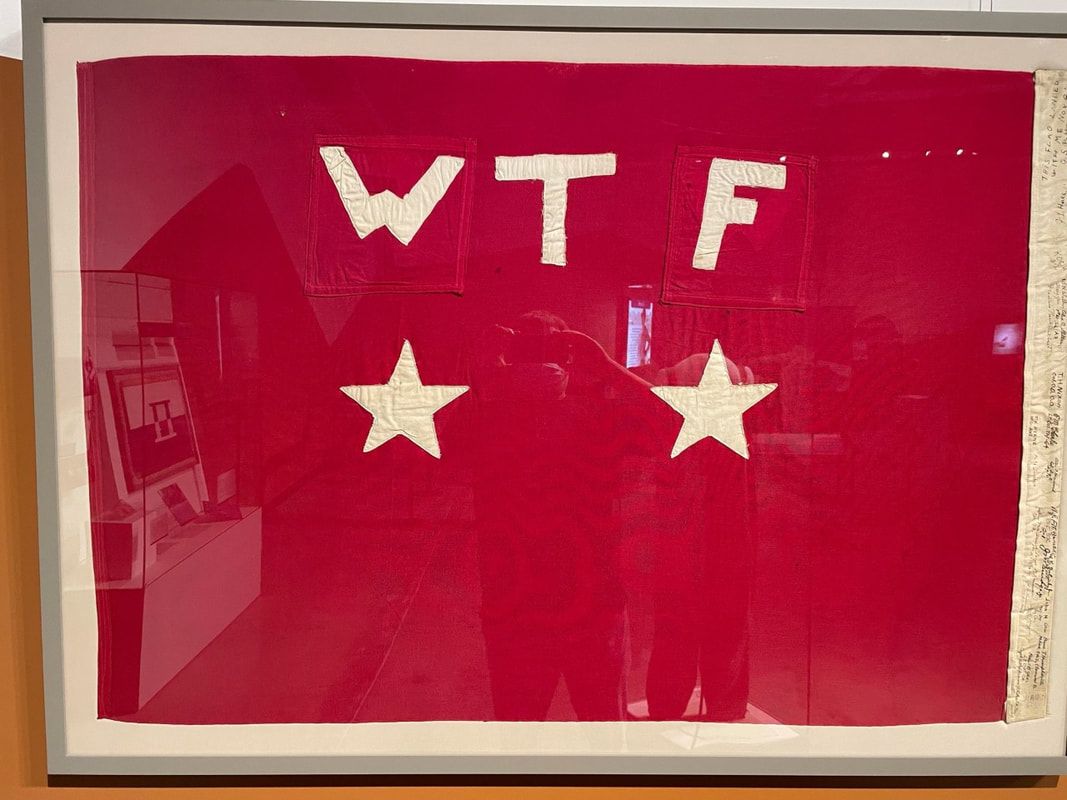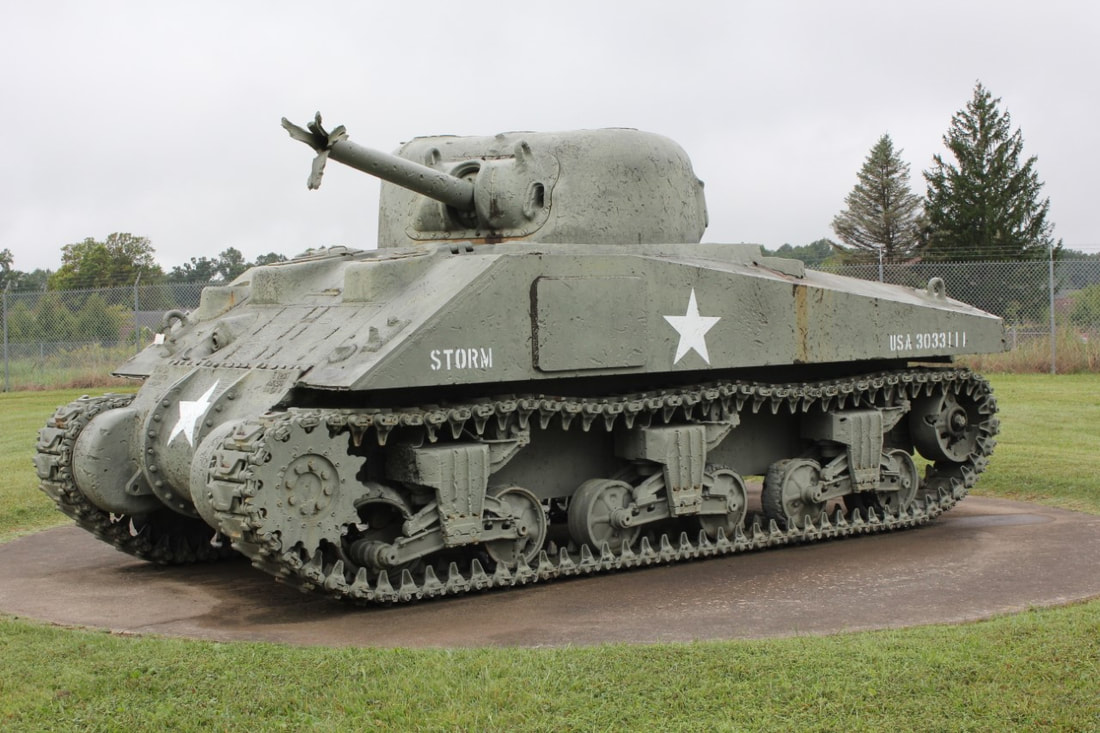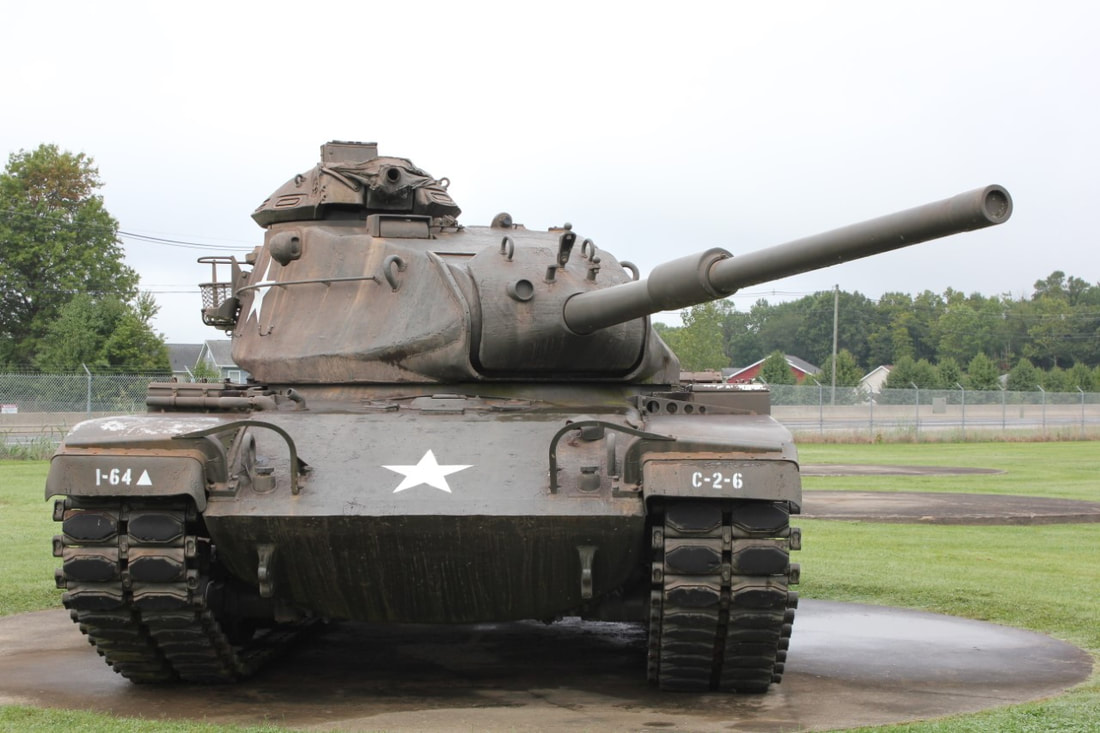|
Read more here.
"Given Advisory Opinion 76, should Reserve Component (RC) judge advocates who are state prosecutors or public defenders be assigned as general or special court-martial military judges, CCA judges, or military magistrates? What about RC judge advocates who are Assistant U.S. Attorneys, Main Justice attorneys, or federal defenders?" Earlier we spotted a case where a federal child obscenity prosecutor sat as an MJ in a child abuse case. Story here:
"Two U.S. service members who have recovered from COVID-19 are asking a federal judge to put an immediate stop to the Defense Department's mandatory COVID-19 vaccine order. Army Staff Sgt. Daniel Robert and Marine Corps Staff Sgt. Hollie Mulvihill filed a suit Aug. 17 in the U.S. District Court for the District of Colorado seeking an exception to the order for military members who have recovered from the illness." Robert Leider George Mason University - Antonin Scalia Law School, Faculty Date Written: September 29, 2021 "Abstract The Constitution provides for two kinds of military land forces—armies and militia. Commentators and judges generally differentiate the armies from the militia based upon federalism. They consider the constitutional “armies” to be the federal land forces, and the constitutional “militia” to be state land forces—essentially state armies. And the general consensus is that the militia has largely disappeared as an institution because of twentieth-century reforms that brought state National Guards under the control of the federal Armed Forces. This Article argues that the general consensus is wrong. At the Framing, the proper distinction between “armies” and “militia” had to do with professionalism, not federalism. Armies comprised soldiers for whom military service was their principal occupation, while the militia comprised individuals who were subject to military service only on a part-time or emergency basis. Put differently, the armies were the regular forces, while the militia was the citizen army. From these definitions, this article then provides a better translation of the Framing-era military system to the structure of the modern Armed Forces."
‘Crapshoot’ sentencing by court martial juries likely to end, advocates for new legislation say
"Court-martial sentencing by juries may go the way of flogging, a change many military justice experts say is long overdue. Military judges instead would hand down sentences based on federal guidelines as part of military justice system reforms proposed in the 2022 National Defense Authorization Act. The act isn’t expected to be signed into law until sometime after the new fiscal year starts Friday. The proposal is supported by the Pentagon and is included in both the House and Senate versions of the legislation." "Town Hall 20: A View From the Bench (A Conversation With Military Judges), Monday, Oct. 4, 2:00 p.m. (East Coast US)
Town Hall 20: A View From the Bench (A Conversation with Military Judges) Monday, October 4⋅2:00 – 3:00pm -- please join us for this special event -- and invite friends who may be interested. Location: https://us02web.zoom.us/j/6935283348?pwd=bEdaSWw1dDViTU1CRDduRjJIUGdDdz09" “Lt. Col. Stuart Scheller Jr. is currently in pre-trial confinement in the Regional Brig for Marine Corps Installations East aboard Marine Corps Base Camp Lejeune pending an Article 32 preliminary hearing,” said Capt. Sam Stephenson, a spokesman for Training and Education Command. “The time, date, and location of the proceedings have not been determined. Lt. Col. Scheller will be afforded all due process.”
Read the Task and Purpose article here. CAAF's 2021 term is approaching fast. Here are the four cases before CAAF next week: Tuesday, October 5, 2021 United States v. Julian D. Schmidt Case Summary: GCM conviction of sexual abuse of a child. Granted issues question: (1) whether the phrase "in the presence of" used to define the term "lewd act" in Article 120b(h)(5)(d) requires the child to be aware of the lewd act or merely that the accused be aware of the child's presence; (2) whether Appellant affirmatively waived any objection to the military judge's instructions and the failure to instruct on the affirmative defense of mistake of fact; and (3) whether having assumed deficient performance by counsel, the lower court erred in finding no prejudice. United States v. Virginia S. Moratalla Case Summary: GCM conviction of attempted larceny, larceny, drawing and uttering a check without sufficient funds, bank fraud, and dishonorably failing to pay debt. Granted issue is whether the Appellant's guilty plea to bank fraud under 18 U.S.C. Section 1344 was improvident. Wednesday, October 6, 2021 United States v. Bradley M. Metz Case Summary: GCM conviction of arson, housebreaking, and unlawful entry. Granted issue is did the lower court err by failing to apply Brown v. Illinois, 422 U.S. 590 (1975), despite finding Appellant was illegally apprehended. United States v. Jerard Simmons Case Summary: GCM conviction of sexual assault of a child, extortion, and producing child pornography. Granted issue questions whether the military judge erred in allowing the government to make a major change to a specification, over defense objection – almost tripling the charged time frame – after the complaining witness's testimony did not support the offense as originally charged and the prosecution had rested its case. Briefs for all cases can be found here. Court of Appeals for the Armed ForcesCOVID rule for civilians wishing to enter the CAAF building. Note it does not address military personnel yet to be vaccinated or who have an exemption. Air Force Court of Criminal AppealsUnited States v. Murillo. In this GP case the MJ sentenced Appellant to 106 days, a BCD, and a reprimand for divers use of cocaine. Appellant raised three issues.
The court did not decide if TC's argument was improper, rather, they decided that, Although trial defense counsel’s objection was overruled, the military judge demonstrated he was not committed to trial counsel’s legal understanding of the evidence. We are confident the military judge put “victim” in the appropriate context and that Appellant was sentenced on the basis of the evidence alone and not trial counsel’s interpretation of “victim” under the rules applicable to sentencing. The court did not find error regarding the NJP record because,
United States v. Dodd. In this GP case the MJ sentenced Appellant to 12 months, a BCD, and a reprimand, because the Appellant had damaged personal property, and five DV A&B. The case was submitted without assignment of error but the court identified a post-trial error for which the court ordered correction of the error. United States v. Motus. Having returned from correction of post-trial errors, the court reviewed five issues.
Finding no error the court affirmed the findings and sentence. Over the summer we speculated as to why General Martins was retiring as Chief Prosecutor of the Guantanamo Commissions. NYT has updated a story from that time and the update appears to resolve that question in a way that is not at all flattering to General Martins: "The chief prosecutor at Guantánamo for a decade, Brig. Gen. Mark S. Martins, had cited a statement obtained through torture, clashing with senior administration officials who questioned his authority to do so. The dispute played a part in his unexpected decision to retire from the Army 15 months early, on Sept. 30." (full story here). The ruling by the military judge that torture evidence could be admitted for pretrial purposes is preposterous, and treats such evidence as if it were some technical "exclusionary rule" exception like a Miranda violation admitted for impeachment purposes. Anyone authoring such an opinion has lost the forest for the trees. Brenner FissellEIC "The sole issue presented in this appeal is whether Lorance’s acceptance of a full and unconditional presidential pardon constitutes a legal confession of guilt and a waiver of his habeas rights, thus rendering his case moot. This is an issue of first impression in this Court. We conclude that Lorance’s acceptance of the pardon did not have the legal effect of a confession of guilt and did not constitute a waiver of his habeas rights.
Despite Lorance’s release from custody pursuant to the pardon, he sufficiently alleges ongoing collateral consequences from his convictions, creating a genuine case or controversy and rendering his habeas petition not moot. Accordingly, exercising jurisdiction under 28 U.S.C. § 1291, we reverse and remand for further proceedings." Read the opinion here. (h/t Don Rehkopf & Eric Freedman) UPDATE: Not Just the Army: DoD-wide Changes Coming to Disposition Authority Over Sex Offenses9/22/2021
CNN: Pentagon announces plan to implement sexual assault commission recommendations
""The administration has placed an unprecedentedly high priority on this challenge set," Deputy Secretary of Defense Kathleen Hicks said during a briefing at the Pentagon on Wednesday. "We have now created the way ahead, called the implementation road map, and Secretary Austin has approved it in its entirety." The implementation plan includes proposed changes to the Uniform Code of Military Justice and the planned creation of the Office of the Special Victim Prosecutor, which will remove the investigation of sexual assault and domestic violence from the chain of command, one defense official said." Comment: I'm going to assume this is just sloppy writing. Surely the DoD does not include in its "plan" any legislative changes. We know from the Army that there are ways to achieve the same effect via regulation. Perhaps this is what is meant? H/T to Isaac Samuels for the link. UPDATE: Read the memo here. "NOTICE
In Re Rules Advisory Committee: Pursuant to C.A.A.F. Rule 45, the following persons are hereby appointed as members of the Rules Advisory Committee, effective October 1 2021, for a term expiring on September 30, 2024: Thomas E. Booth, Esq. Audrey B. Critchley, Esq. Dwight H. Sullivan, Esq. The following members, whose terms expire on the dates indicated below, remain on the Rules Advisory Committee: To expire on September 30, 2022: Professor Steven H. Goldblatt (Chair) Ms. Carol K. Joyce, Esq. Ms. Michelle Lindo McCluer, Esq. To expire on September 30, 2023: William A. DeCicco, Esq. Matthew G. Kaiser, Esq. Rebecca S. Snyder, Esq. The Clerk of the Court is an ex officio member of the Committee and serves as Reporter. " In United States v. Begani, the CAAF held that members of the Fleet Reserve and Fleet Marine Corps Reserve (collectively Fleet Reservists) maintain a sufficient connection to the military to subject them to continuous UCMJ jurisdiction. This ruling, however, places the CAAF in direct conflict with the U.S. District Court for the District of Colombia (DDC), whose Larrabee v. Braithwaite decision found that Fleet Reservists did not maintain a sufficient connection to the military to subject them to continuous UCMJ jurisdiction.
Larrabee now awaits a ruling by the U.S. Court of Appeals for the District of Columbia (CADC). Should the CADC uphold the DDC’s holding, the Supreme Court will have to resolve this “circuit split.” And, if it does, Judge Maggs’ “originalist” concurrence in Begani, joined by Judge Hardy and Senior Judge Crawford, might have an outsized impact on the arguments. A flag from Fort Knox. Tanks outside the General George Patton Museum of Leadership at Fort Knox. Something tells me that M4A2 Sherman was the subject of a 15-6 investigation. After running 1,064 miles in six days, the Mustang has returned to its paddock. Contingencies of Proof, over and out. Thelma & LouiseThe editors are happy to learn that our itinerant colleagues did not drive off a cliff, were not threatened by a Dodge Challenger driven by shotgun wielding locals, and the Mustang Diaries have been--well, interesting. ** They conclude their travels with a report on two revolutionaries of the arcane military justice system.
United States Supreme CourtJacobson v. Massachusetts, 197 U.S. 11 (1905). A seminal case on state compelled vaccinations (smallpox). The Supreme Court held that the "police power" allowed the state to create a mandatory smallpox vaccine program administered by a board of health and enforced through criminal sanctions. In a recent case, the Second held that "New York State's requirement that all children be vaccinated in order to attend public school (subject to medical and religious exemptions), does not violate substantive due process rights, the Free Exercise Clause of the First Amendment, the Equal Protection Clause of the Fourteenth Amendment, the Ninth Amendment, and both state and municipal law. Phillips v. City of N.Y., 775 F.3d 538, 540 (2d Cir. 2015). Court of Appeals for the Armed ForcesUnited States v. Mellette, grant. I. M.R.E. 513 EXTENDS THE PYSCHOTHERAPIST-PATIENT PRIVILEGE TO A "CONFIDENTIAL COMMUNICATION" BETWEEN PATIENT AND PSYCHOTHERAPIST OR ASSISTANT. DID THE LOWER COURT ERR BY CONCLUDING DIAGNOSES AND TREATMENT ARE ALSO SUBJECT TO THE PRIVILEGE, INVOKING THE ABSURDITY DOCTRINE? II. DID THE NMCCA DEPART FROM SUPREME COURT AND CAAF PRECEDENT BY NOT REVIEWING THE EVIDENCE AT ISSUE—DIAGNOSES AND TREATMENT, INCLUDING PRESCRIPTIONS—IN CONCLUDING: (1) THE MENTAL HEALTH EVIDENCE WAS BOTH PREJUDICIAL AND NON-PREJUDICIAL; AND (2) FAILURE TO PRODUCE IT WAS HARMLESS BEYOND A REASONABLE DOUBT WHERE THE UNKNOWN EVIDENCE COULD HAVE NEGATED THE EVIDENCE THE NMCCA CLAIMED TO BE "OVERWHELMING" EVIDENCE? The NMCCA decision This case, like United States v. McPherson, __ M.J. __ (C.A.A.F. 2021), requires us to decide whether Appellant’s prosecution for certain offenses was time-barred by the statute of limitations provision in the 2016 version of Article 43(b)(1), Uniform Code of Military Justice (UCMJ), 10 U.S.C. § 843(b)(1) (2012 & Supp. IV 2013–2017). Pursuant to the Court’s decision in McPherson, we hold that the statute of limitations had expired for Appellant’s charged offenses under Articles 125 and 134, UCMJ, 10 U.S.C. §§ 925, 934 (2000). We noted United States v. Braimer, a published opinion of the NMCCA. A petition for review was denied by a four-member CAAF on September 8, 2021.
ee here for a short note on why it is unfair to petitioners when there is no fifth judge to decide their petitions. Having a CAAF was partly intended to instill in servicemembers and the public that an accused and appellant will get a fair shake. At CAAF, the prosecution has a 100% guarantee the court will hear an issue that the government wants decided in its favor. The Appellant is already at a disadvantage because he has to plead rather than direct, and without a fifth judge the odds for an appellant are lower. Army Times: Paratrooper ordered videos deleted after dodgy gunfight in Syria, charge sheets say9/17/2021
Read it here.
"On Aug. 17, 2020, Sgt. 1st Class Robert Nicoson’s patrol drove up to a checkpoint in northeastern Syria manned by troops loyal to Syrian President Bashar al-Assad. Nicoson dismounted his vehicle and threatened to kill the pro-regime fighters if they did not allow B Troop, 1st Squadron, 73rd Cavalry Regiment, through, the charge sheets said. The exchange that followed reportedly killed one Syrian fighter and wounded two others. There were no U.S. casualties. A portion of the gunfight was caught on video, though it does not show how it began. After the incident, Nicoson ordered two soldiers to delete video recordings of the unit’s actions at the checkpoint in an attempt to cover up any potential wrongdoing, the charge sheets said. He also ordered a soldier to falsely claim that pro-Syrian regime fighters granted the troop permission to pass through the checkpoint, the charge sheets added. The paratroopers eventually returned to their home of Fort Bragg, North Carolina. Roughly eight months after the incident, Nicoson was charged with two counts of failure to obey an order; two counts of reckless endangerment; one count of communicating threats; and three counts of obstructing justice." BMF: It's always the coverup, not the crime, right? What offense was he committing by attempting to get through the checkpoint? What am I missing? I see an order violation offense. Jessica D. Blankshain and Max Z. Margulies, The Downside of High Trust in the Military, New York Times:
"When the military is seen as the most competent, trustworthy government institution, it becomes tempting to invite the military to undermine civilian control and democratic governance. This was evident in public speculation about the role the military might play in adjudicating or enforcing the 2020 presidential election and in recent reports that largely portray Gen. Mark Milley, the chairman of the Joint Chiefs of Staff, as a check on an out-of-control president in the final days of the Trump administration ... In the long term, as difficult a challenge as it may be, we should make every effort to shore up confidence in civilian democratic institutions and to elevate other forms of public service, which can be done without denigrating military service." Comment: This is obviously applicable to the debate about military justice reform. See, e.g., this exchange.  In 1884, Bud Hillercih – an apprentice at his father’s woodworking shop – made a bat for a Louisville Eclipse player named Pete Browning. A decade later, Hillerich registered Browning’s nickname as the trademark for his growing bat business: Louisville Slugger. One of Hillerich’s innovations as a businessman was obtaining player endorsements. The first professional athlete retained to endorse an athletic product was the Flying Dutchman, Honus Wagner, who signed a contract with Hillerich in 1905. Louisville Slugger offers a special status for players under contract: it burns their signatures onto their bats. One bat on display at the Louisville Slugger Museum & Factory features Jackie Robinson’s signature burned into the end of the barrel. Robinson signed a contract with what was by then Hillerich & Bradsby Co. in October 1946 – little less than six months before he broke Major League Baseball’s color barrier. Jackie Robinson will always be revered for that feat and the majestic dignity with which he accomplished it. He was also a great baseball player. He was the 1947 Rookie of the Year, batting .297 that season. Two years later, he was the National League’s MVP, leading the league in batting average and steals. During his ten seasons with the Dodgers, the team won six pennants and one World Series. His career batting average was .313. Robinson was also a veteran. He was drafted in 1942 and commissioned in 1943 after the great boxer Joe Louis championed the cause of allowing highly qualified Black soldiers to attend Officer Candidates School. In April 1944, Robinson became a tank platoon leader at Fort Hood, Texas. And there, in 1944, he was court-martialed after refusing to move to the back of a bus. A panel of nine officers – two of them Black – ultimately acquitted him of charges of failing to obey an instruction by a superior commissioned officer and disrespect to a superior commissioned officer. Those charges arose from his interaction with a captain at an MP station after the bus incident. A riveting account of those events is set out in Major Adam Kama’s article, “The Court-Martial of Jackie Robinson,” in Issue No. 1, 2020, of the Army Lawyer, available here: https://tjaglcspublic.army.mil/the-court-martial-of-jackie-robinson?inheritRedirect=true. The article recounts the trial in detail, including a delicious impeachment of a government witness during the defense’s case in surrebuttal. Any litigator will love this article. A year after his acquittal, which was followed by his honorable discharge “by reason of physical disqualification,” Robinson had his fateful meeting with Branch Rickey, the owner of the Brooklyn Dodgers who was determined to integrate Major League Baseball. That set Jackie Robinson on the road to his contract with Hillerich & Bradsby Co. – and one of the great moments in American history. The TravellersBecker is a 62 appeal, in which Judge Sparks writes for a unanimous CAAF that,
The military judge citing M.R.E. 804(b)(6) in light of Giles v. California, 554 U.S. 353, 367 (2008), ruled that the Government had failed to demonstrate that Appellant acted on the day of Mrs. Becker’s death “in order to prevent Mrs. Becker’s testimony.” The military judge noted that “by October 9th, 2015, there were no active . . . and no anticipated investigations” of Appellant regarding Mrs. Becker’s earlier allegations of Appellant’s physical and emotional abuse. Further, “although Mrs. Becker raised the 2013 incident with friends and family on several occasions, she never expressed any disappointment that the original investigation had closed or a desire to see the accused further investigated.” He ultimately agreed with the defense and concluded that it was not “reasonably foreseeable” that Appellant would be investigated regarding Mrs. Becker’s prior allegations against him or that Appellant might face charges based on those allegations, such that Mrs. Becker might be required to testify against him. In discussing the forfeiture by wrongdoing exception, the CAAF relied on Crawford v. Washington, 541 U.S. 36, 42–43 (2004). Giles v. California, 554 U.S. 353, 367 (2008). Reynolds v. United States, 98 U.S. 145, 158 (1878). Mil. R. Evid. 804(b)(6) ""allows “[a] statement offered against a party that wrongfully caused or acquiesced in wrongfully causing the declarant’s unavailability as a witness, and did so intending that result.”" Note the intent is looked at subjectively not objectively. Slip op. at 5. Because the case was a government appeal, the reviewing courts are bound by the facts found by the military judge unless they are clearly erroneous or not supported in the record. Cossio arises. "A reviewing court may not “find its own facts or substitute its own interpretation of the facts.” United States v. Cossio, 64 M.J. 254, 256 (C.A.A.F. 2007). Finally, as noted earlier, we directly review the military judge’s findings for an abuse of discretion. That said, we disagree with the lower court’s decision to disregard the military judge’s analysis and conduct a Giles analysis on a particular set of facts determined to be important to the lower court. On an Article 62, UCMJ, appeal, the lower court is not authorized to make factual determinations to support a simple difference of opinion between it and the military judge. Footnote 3 gives a little more on this point. 3 Nor are we persuaded, contrary to the lower court’s implied insinuation to the contrary, that the military judge ignored important facts. The situation in this case is nothing akin to the situations we have encountered in the past where we concluded the military judge had indeed done so. See Commisso, 76 M.J. at 323 (the military judge neglected to consider facts that should have been weighed heavily in resolving the critical issue); United States v. Solomon, 72 M.J. 176, 181 (C.A.A.F. 2013) (the military judge failed to reconcile or even mention uncontroverted police report showing accused was in custody at the time the victims were being assaulted). Cheers, the Eds."To better protect Soldiers from sexual harassment and assault, the Army will establish an office designed to make decisions to take action on such crimes, the service’s top civilian leader said Sept. 7."
Read the article here. |
Links
CAAF -Daily Journal -Current Term Opinions ACCA AFCCA CGCCA NMCCA Joint R. App. Pro. Global MJ Reform LOC Mil. Law Army Lawyer Resources Categories
All
Archives
April 2022
|
||||||














